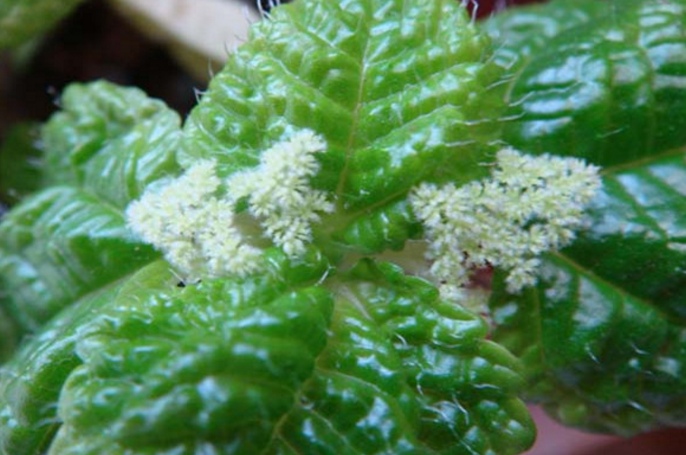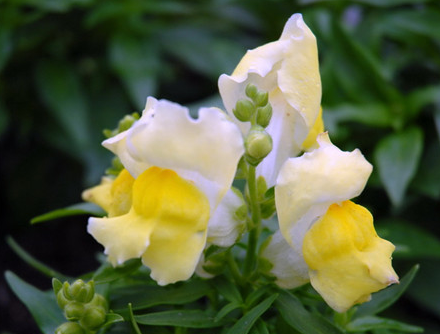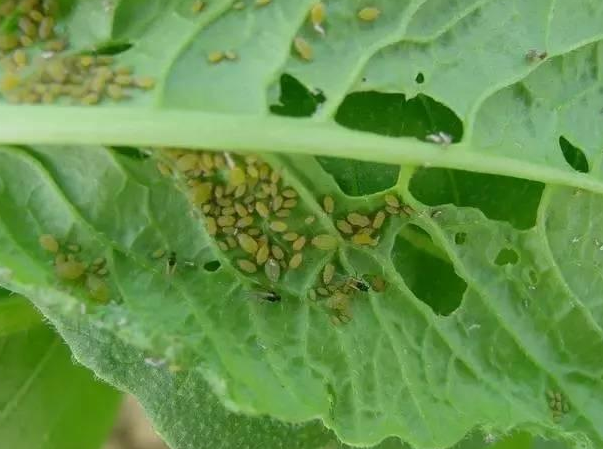The culture method of strawberry orchid what if the leaf tip is black?
Strawberry hanging orchid, this is a lot of people like breeding, this strawberry hanging orchid is such an attractive, strawberry hanging orchid culture method is what? What if the leaf tip of strawberry orchid is black:

Culture methods of strawberry orchids:
1. Lighting
Strawberry hanging orchids prefer semi-overcast environment, so we must avoid direct sunlight, especially in summer, it is best to see the sun only in the morning and evening, and shade is needed during the day, otherwise it is easy to burn the leaves. Strawberry orchids can grow beautifully when the light is weak, but they should be bathed in the sun in winter, so that their leaves will be more fresh and tender. The most suitable position is in front of the south window to ensure that the leaves are shiny and beautiful.
2. Watering
Strawberry orchids like to be wet, so keep the soil moist, but don't accumulate water. Summer needs to increase the amount of water, the supply of water must be adequate, you can also spray some water on the branches and leaves in the evening to prevent drying up. In addition, regular spray washing of branches and leaves is also conducive to reducing dust cover, making the leaves more bright and full of luster.
3. Fertilization
Strawberry orchids also like to eat fat, fat and water must be enough, otherwise the leaves will turn yellow, lose their original luster, and look not beautiful. From late summer to early autumn, organic fertilizer can be applied once a week to ensure the supply of nutrients.
4. Change the basin
The basin soil should be changed once a year in March, of course, if the basin is relatively deep and the base fertilizer is sufficient, it can be changed every two years. When changing the basin, turn the basin over, knock out the plant, remove the excess and unhealthy roots, put new humus-containing culture soil in the basin, and add some base fertilizer appropriately. After cultivation, put it in a warm and semi-shaded place, when the plant returns to normal growth, it can be maintained normally, pay attention to ventilation.
What if the leaf tip of strawberry orchid is black:
First, too much watering, it is fleshy rhizome, after watering too much, it is very easy to rot roots to cause leaves to turn yellow, in addition, you let it bask in too much sun, bask in more sun, not only yellowing, to be exact, not only yellowing, but also very white. If you do the opposite, you can be cured.
Strawberry orchids also need more sun. Hurry up and get some in your own house.
How to raise the pearl orchid? what if the leaf tip of the pearl orchid is black?
Pearl Cymbidium is a foliage plant with beautiful leaf shape and color, which is often used in indoor greening and planting. It is an ideal flower for family suspension cultivation. Pearl orchid can also absorb stupid, formaldehyde and other toxic gases, so pearl orchid also has the laudatory name of green purifier, so it is also used for indoor air purification pot planting, so, how to cultivate pearl orchid? What can we do? Next, I would like to tell you about the breeding methods of pearl orchids, hoping to help you.
Brief introduction of Pearl hanging Orchid
The pearl orchid gets its name because of its bulging, full green oval leaves shaped like pearls. Also known as jadeite bead, lover's tears, Buddha bead hanging orchid, jadeite bead, green bell, green bell. The florescence is usually from December of that year to January of the following year. Pearl orchid prefers loose and fertile soil rich in organic matter. It grows best in the environment of warmth, high humidity and strong scattered light. High temperature and humidity should be avoided in summer, otherwise it is easy to rot stems and die. Potted flowers can be cultivated in rain-proof shade. After autumn, the plant will resume growth, increase light, and topdressing liquid fertilizer, as well as blue pearl orchid and brown pearl orchid.
The cultivation of pearl orchids should pay attention to the following aspects.
1. Watering. The meat of the pearl orchid is thick and juicy, and its drought tolerance is strong, but its rot resistance is slightly weaker. Therefore, in the daily watering process to achieve the principle of dry rather than wet, especially in summer, it is most likely to lead to rotting roots. It is best to use the form of spraying when watering. Pearl orchid likes semi-shaded environment, whether it is high temperature or excessive shading will affect its growth.
2. Fertilization. Fertilization requires frequent application of thin fertilizer, fertilizer will be divided into many times, a small amount of principle fertilization, usually 1% to 3% of nitrogen fertilizer and potassium dihydrogen phosphate, can promote the growth of its leaves.
3. Environment. Pearl hanging orchid likes a warm and humid environment and is most suitable for growing in an environment of 20 mi 28 degrees Celsius. If the temperature is too high, the orchid will adapt to dormancy, at this time it needs little water and fertilizer, so it can be less watering and fertilization, otherwise it will lead to rotting roots.
4. Diseases and insect pests. Aphids are one of the most common pests of pearl orchids, which often appear in spring and can be killed by spraying 1500 times oxidizer or directly erased manually, with less harm. What often appears in summer is mites, which should be killed with 1000 times triclofenac, which is generally caused by insufficient humidity on the page and poor ventilation.
5. Soil. It is best to use rotten leaf soil, which can provide nutrients for plant growth. The requirement of soil is not high, the most important thing is its air permeability and filterability.
The cause of blackening and atrophy of the leaf tip of Pearl Cymbidium
1. The air is dry, the sun is too strong and the temperature is too high. This situation mainly occurs in summer and autumn, because Cymbidium likes to grow in a humid and semi-overcast environment, once the air is too dry and the sun is unsheltered, and if the temperature is as high as 30 degrees, it is very easy to cause the leaf tip of the plant to wither. If this is the case, you can put the plant in a semi-shady environment, cut off the dead leaves, often spray water to the leaf surface and the environment, and the newly extracted leaves can return to the normal state.
2. Stagnant water in basin soil and rotting of nutrient fibrous roots. Because the potted soil is too sticky or too heavy, or watering too frequently, the vegetative fibrous roots of Cymbidium are rotten, so the ability of the root system to absorb water will be greatly reduced, which will lead to the blackening of the leaf tip and the inner curvature of the edge. If this is the case, you can remove the plant from the flowerpot, shake off part of the persistent soil, cut off the rotten root system, replace it with clean wet sand, keep the sand moist, do not spray too much water, and wait for the emergence of white and tender whisker roots. and then replace the fertile culture soil for planting.
3. it is caused by not changing the basin for a long time. In the environment of high temperature, high drought or cold weather, it is easy to cause root tip atrophy and necrosis, making it lose its due absorption function, resulting in leaf tip drying and atrophy. If this is the case, you can first pour the plant out of the flowerpot, cut off the dead leaves or the necrotic parts of the leaves, then pick out part of the old soil, delete some aging or necrotic roots, and plant them with fresh culture soil. put it in a cool, moist, semi-shady environment, pay attention to more water spraying, less watering, the newly drawn young leaves of the plant can return to normal.
The above is for you to talk about the pearl orchid culture method, is everyone clear? Please pay attention to more knowledge of home decoration.
Culture method of strawberry orchid
Strawberry orchid is a commercial variety of hanging orchid, the leaves are evergreen all the year round, the flowers are white and elegant, the fragrance is pleasant, the fruit is bright red and beautiful, it is both enjoyable and edible, and strawberry hanging orchid is suitable for pot cultivation, and it is also a good product for families to raise flowers. Let's take a look at the cultivation methods of strawberry orchids.
Growth habits of strawberry orchid
Strawberry hanging orchids like warm, moist and semi-shady places, and are not resistant to drought. they should be kept from the sun in summer, watch indoors during the day, and conditionally put them in an outdoor shelter at night (but ventilation). According to the growth situation, the split propagation was carried out in combination with changing pots in spring and April, and put in a semi-shaded place after changing pots. The soil is required to be loose, rich in humus and well drained. If the soil is too wet and dry, it will cause yellow and withered branches and leaves. The foliage can be sprayed with clean water to keep the foliage clean and moist. In winter, it should be cultured indoors at about 15 ℃ to avoid freezing damage.
Propagation methods of Strawberry Cymbidium
The reproduction of strawberry orchids is very simple, usually using young plants to reproduce, cut off young plants like small hanging orchids that grow from their mother plants in autumn, plant them in a basin containing culture soil, and add organic fertilizer as base fertilizer, then pour enough water and place them in a semi-shady place. after moving to a sunny balcony, platform or patio, it will grow into a new plant.
Culture method of strawberry orchid
1. Lighting: strawberry hanging orchid prefers semi-overcast environment. Spring and autumn should avoid strong direct sunlight, summer sun is particularly strong, can only see some oblique light in the morning and evening, during the day need to cover 50% 70% of the sun, otherwise it will make leaf tips dry, especially flower and leaf varieties, more afraid of strong sunlight. Phnom Penh strawberry orchids grow more beautiful in places with weak light, yellow edges are more obvious, and leaves are brighter. But it should be more sunny in winter in order to keep the leaves tender and fresh green. Strawberry orchids raised in the family pot should be placed in front of the south window, otherwise the leaves will lose their luster and even wither.
- Prev

How long is the florescence of goldfish grass
Goldfish grass, this is a lot of people are super like, although this goldfish grass is grass, but also want to blossom, what is the breeding method of this goldfish grass? How long is the flowering time of goldfish grass: the culture method of goldfish grass: variety selection, there are varieties with larger plants and varieties with low flowers.
- Next

How to prevent insects from domestic plants
Domestic plant insect control, this is a lot of people like breeding, but plants will grow insects, what is the method of domestic plant insect control? How to protect domestic plants from corrosion: insect control methods for domestic plants: 1. We peel and mash about 30 grams of garlic, and then soak the mashed garlic with 500 grams of water.
Related
- Fuxing push coffee new agricultural production and marketing class: lack of small-scale processing plants
- Jujube rice field leisure farm deep ploughing Yilan for five years to create a space for organic food and play
- Nongyu Farm-A trial of organic papaya for brave women with advanced technology
- Four points for attention in the prevention and control of diseases and insect pests of edible fungi
- How to add nutrient solution to Edible Fungi
- Is there any good way to control edible fungus mites?
- Open Inoculation Technology of Edible Fungi
- Is there any clever way to use fertilizer for edible fungus in winter?
- What agents are used to kill the pathogens of edible fungi in the mushroom shed?
- Rapid drying of Edible Fungi

